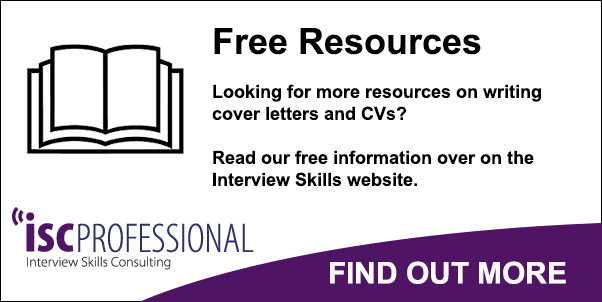CV Tips: What Not To Include In Your CV or Resume
Choosing what to include in your CV or resume can often be obvious if you have enough experience and roles. But have you ever found yourself wondering about which parts you should not include in your CV?
Is your section on personal past hobbies something employers want to see? Is that job from 8 years ago still relevant to include on your CV? Should you really be using different fonts?
A recent survey showed that the average employer spends just three minutes inspecting each CV (curriculum vitae) when recruiting. It is clear from this that an effective CV must pack a real punch.
Deciding what information to include is critical but equally important is recognising what should be left out. Here we take a closer look at ten things you should not include in a CV.

1. Irrelevant information
A CV should be comprehensive yet concise, so focus on the qualifications, skills and experience which relate to the specific position you are interested in.
It should be coherent and should position you for the role stating clearly why you are suitable for the job, and for the organisation.
2. Negative remarks
Be positive throughout and avoid any negative inferences in relation to the job, the company, or yourself. Never express a lack of confidence in your abilities – the CV is all about selling yourself.
Also do not detract from your commitment by suggesting that you would prefer a different type of role than that advertised.
3. Odd pastimes
A CV should present an image of a well rounded potential candidate but don’t delve too deeply into hobbies and pastimes. This is particularly true if these run to the rather eccentric end of the spectrum.
Obviously if you are interested in working for a pen manufacturer, then it may be relevant to highlight your collection of unusual pens- but for most employers this is more than they need to know.
4. Spelling and grammatical mistakes
Always proof read your CV thoroughly and ensure it is 100% free of spelling and grammatical errors.
Submitting a document littered with mistakes will only serve to undermine your credibility as a candidate.
5. Stock phrases
According to a recent survey conducted by the New College of Humanities, the majority of employers are frequently enraged by the inclusion of stock phrases such as, ‘I am a problem solver,’ ‘I’m enthusiastic,’ and, ’I’m proactive’.
Avoid these fallback statements and by doing so demonstrate your strong communication skills.
6. Lies
Obviously it is important to present the best version of yourself in your CV but don’t take that desire too far by being dishonest.
Never create fictitious qualifications or employment histories as these will be checked up on, leaving you unemployed and with egg on your face.
7. Physical description
The CV is a professional document and should therefore focus on your professional abilities.
Never provide a description of what you look like or include a photograph (unless requested). Obvious exceptions to this include modelling and acting opportunities.
8. Health issues
Avoid drawing attention to any physical or mental illnesses at this stage in the recruitment process.
Should you progress further in the competition there is ample time to address any reasonable adjustments which you may require due to medical conditions or disability.
9. Unprofessional presentation
Follow a business layout (many templates are available online) and don’t go overboard with underlining, using different fonts and applying italics. Never use clip art and avoid colours which may be distracting.
Don’t use emojis and screen your email address for jokes and/or nicknames.
10. Private opinions on social issues
Be conscious of over-sharing when it comes to personal opinions on issues such as politics, religion and sexual orientation.
These are your own views and should not impact upon your ability to do the job – unless of course you are applying to work for a political party for example.
For more tips on writing a top CV, visit our free information over on ISC Professional, and ensure your CV is as good as it can be.





